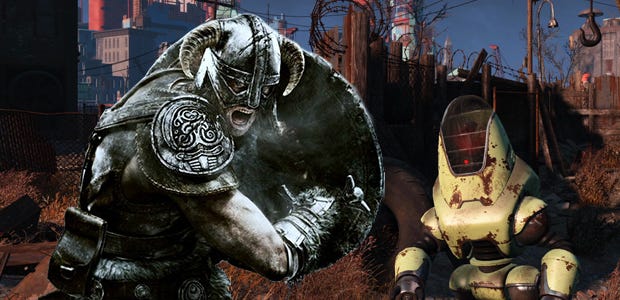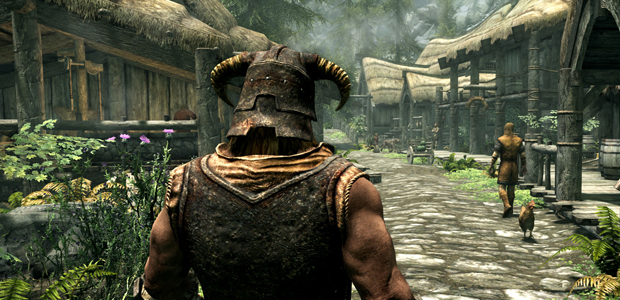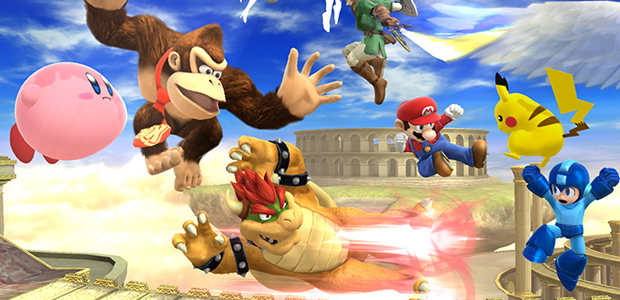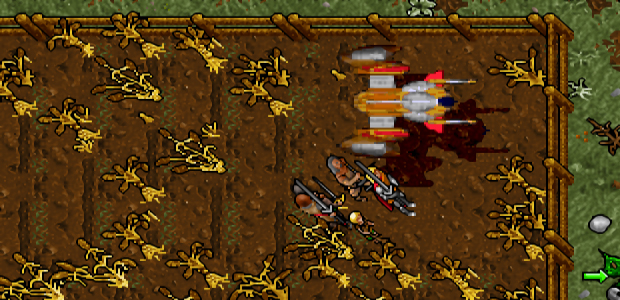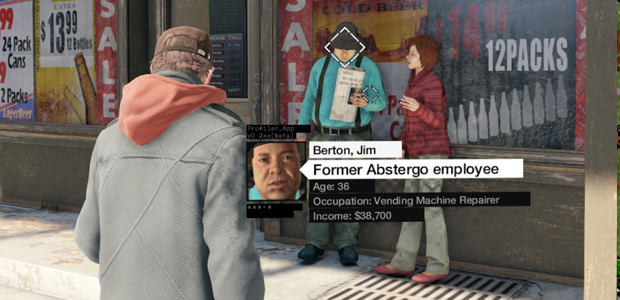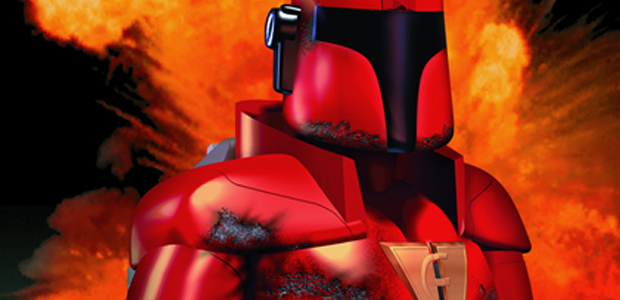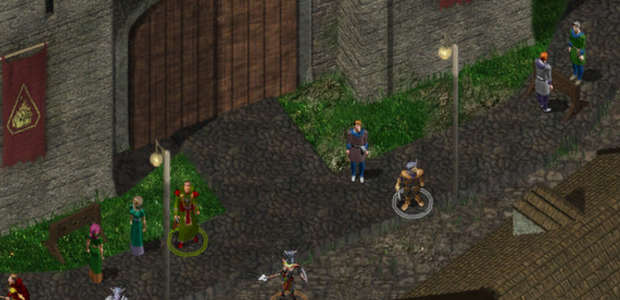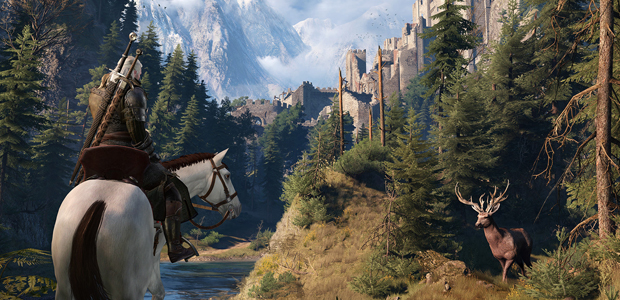The RPG Scrollbars: Universes Built For Sharing
Might need to squish up a bit
For a few horrible minutes during E3, it looked like Bethesda might seriously claim that The Elder Scrolls and Fallout were part of the same universe. Thankfully, not. Despite this being an era where Sony wants a Ghostbusters universe and Universal thinks demeaning the Universal Monsters by linking them with a top-sekrit monstah hunting group led by Dr Jekyll is anything other than schoolboy fan-fiction, Bethesda's Pete Hines has been quick to go "What? No. No! No..." Phew! Honestly, it's bad enough that Daggerfall has six endings, ranging from the villain becoming a god to orcs being either defeated or victorious, and canonically all of them are true.
But at a time when we're seriously asked to pretend that "Dark Universe" is a thing we should want to see, that unholy union really wasn't impossible...
I'm not really a fan of shared universes, and at the very least I think they have to be earned rather than just stated or assumed. Marvel's done a pretty good job with its cinematic universe, in particular making it so that most of the characters' skills and problems manage to avoid the 'Call The Avengers' issue and make a good case for why the problem at hand should be kept local. The Arrowverse on the other hand can highlight the differences between Barry and Oliver all it wants, both the crossovers and overlapping villains and similar mean you have to keep reminding yourself that the answer to "Why doesn't he just call The Flash/Supergirl?" is "Because then the story would be over in five minutes." Don't even get me started on how little The Avengers has managed to interest me in the big blue chap sitting on the space toilet.
So, I'm quite glad that Bethesda, despite having the kind of portfolio that could probably get away with some Bethesdaverse nonsense, isn't falling into that trap and leaving itself in a position where it has to explain why the future is 1950s style and why any other future games aren't, or why nobody in Tamriel has ray-guns or whatever. (Except modders.) It wouldn't add anything except a layer of silliness and artifice. Pretty much without exception, the only cases that work in games are those that fully embrace it. Super Smash Bros for instance isn't really suggesting that Mario and Luigi spend their off-time fighting Bayonetta and Samus and Kirby - the series' original metaphor was a kid with toys - while Super Mario Kart invites you not to think about why they're go-karting with Bowser instead of stomping him into Koopa-goop.
That's not to say that nobody's ever tried blurring the edges of their popular franchises, of course. SF and fantasy are surprisingly easy to mash together, the difference between aliens and monsters being mostly one of origin rather than detail. The trick is for a developer or publisher to actually have the necessary worlds, although even those who do have only really used the potential for glorified easter eggs. The most famous is probably the appearance of a Kilrathi fighter in Ultima VII (take a shot), although there's actually a second example in Ultima Underworld 2 with another feline race called the 'Trilkhai' - members of a former spacefaring race ruined by war. They're not Kilrathi as such, being more cheetah/leopard people than lions, and telepathic into the mix, but the reference isn't subtle. Just mix up a few letters.
The other big example that comes to mind is Lands of Lore III, the incredibly disappointing final game in Westwood's RPG franchise. The premise is that you're trying to get your soul back by exploring assorted dimensions that have bled into the world of Gladstone, facing off against dangers ranging from a haunted house in the Netherworld to the inevitable fire and ice worlds, to... well... death by snu-snu. The final portal realm though is a radioactive desert, which soon leads the way to a NOD Temple from Command and Conquer, complete with an AI that hero Connor doesn't understand at all. On a less overt level, the series also semi-connected fantasy with fantasy by idly referencing the Kyragem from The Legend of Kyrandia, and with the Gladstonian sorceress Dawn pretty much Kyrandia's Zanthia copy and pasted between worlds.
(Oooh, and now I think about it, of course there's Tides of Numenara, which connects itself to Planescape Torment in a few mostly thematic ways, like the use of 'Adahn' as a nom-de-quest but specifically in the case of O, a letter of the divine alphabet who likes hanging out in slightly seedy bars.)
Outside of RPGs, we get a few more cases. GTA references Manhunt, Tom Clancy has a whole military mash-up, and Assasins's Creed's Abstergo Entertainment has gotten around a bit. Almost never though are they more than a cute thing for fans to go "Oooh! I know that reference!" and intended as a true canonical thing. When Crusader: No Remorse's packed-in newspaper discussed the recent success with Project: SHODAN, for instance, it wasn't really setting up a game where its red-armour clad Silencer (think a Stormtrooper who can aim, but doesn't have the sense to at least try and scratch off the Empire's logo from his armour before trying to ingratiate himself with his fellow rebels) would team up with a plucky hacker. Which is probably for the best.
Despite the lack of official shared universes though, it can often feel like we get them anyway. Fantasy, in particular, is so rooted to the traditions of D&D and Tolkien and the tropes of the 80s that it can be hard to remember that things like health potions and mana and the traditional warrior/mage/rogue type classes really aren't some kind of universal law. Worse, while the games that break away from that often do become cult hits and fondly remembered, just as often it feels like different is scary and uncomfortable, be it coming to a JRPG after a lifetime of playing Western modelled games, or just something that does things a little different, like Drakensang or Tyranny or the aforementioned Tides of Numenera. One of the most interesting cases there has to be The Elder Scrolls, where for all the praise lavished on Morrowind, Bethesda opted to spend the next decade first on the far more traditional Oblivion and Skyrim, just as BioWare's plans for Dragon Age began with all kinds of interesting concepts like magic being super rare and ended with a world full of apostate mages for caster fights.
Of course, I'm not saying that all these worlds are the same. Every major RPG of interest finds new material to tap and its own direction to take things, from The Witcher's focus on personality and lavish use of fairytale mythology to the titular Dragon Age: Origins, and at least its attempt to do something new in the sequel by creating an epic story based primarily on the passing of time rather than distance. As a general concept though, it would be nice to see more fantasy in the sense of crazy and wonderful ideas, and just a little less based on the accepted definition of the genre. There's only so many worlds you can save before they start blending into each other regardless of the creators' intent, and if that's going to happen, maybe their collective heroes are okay saving the day on their own while we focus on the new and interesting threats still lurking behind P&P games and mythological bestiaries and classic stories of adventure that have still yet to be retold through the glorious medium of pixels.
